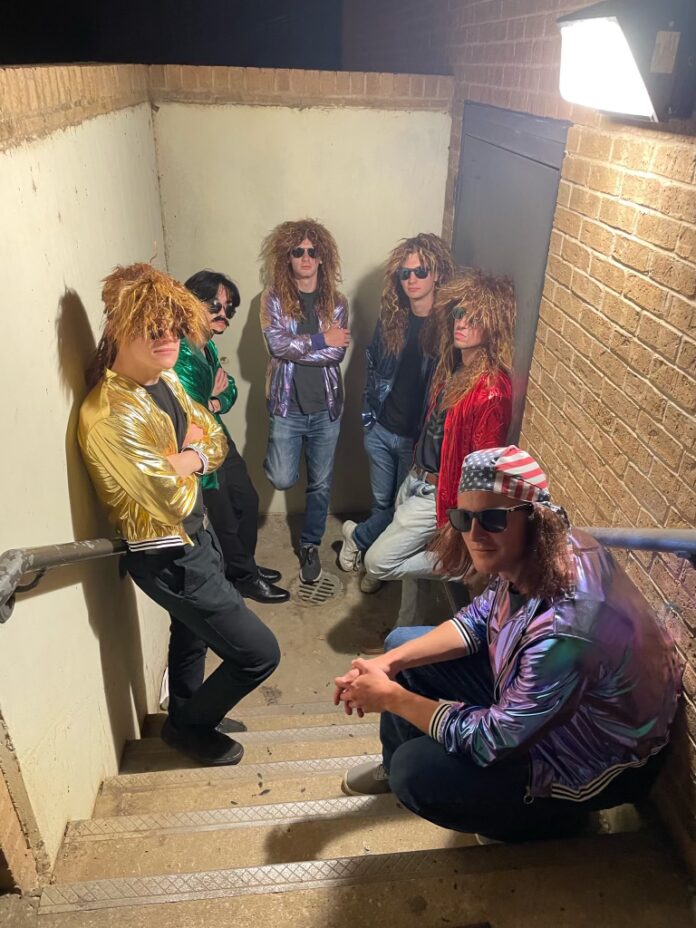Exploring the Punk Parallels of Catholicism
Punk music and Catholicism might seem like opposites. One shouts through amplifiers, the other prays in quiet chapels, yet both carry a spirit of rebellion. Punk has always been about resisting complacency and fighting for something real and Catholicism has its own tradition of holy rebels who shook the world. St. Francis of Assisi shocked his town by giving up his wealth to live among the poor and St. Joan of Arc defied kings and led an army, claiming God had called her to act.
These saints did not accept the status quo but confronted it head-on. Their lives show that Catholicism is not passive but transformative, calling believers to resist the false promises of the world and live for something greater. This is the same spirit that drives punk: a refusal to conform, a hunger for authenticity and a demand for real change.
At their core, both punk and Catholicism are countercultural. Punk rejects the idea of quietly conforming with whatever society hands you, and Catholicism does the same. It refuses to bend to passing trends or popular opinion, holding fast to a truth that is often inconvenient or unpopular.
Few figures capture this spirit better than St. Joan of Arc, a teenage peasant girl who defied kings, generals, and skeptics to lead France’s army. Scripture echoes this call to holy rebellion: “Do not be conformed to this world, but be transformed by the renewal of your mind” (Romans 12:2).
Just as punk bands such as The Clash or the Sex Pistols scream against conformity and demand authenticity, the Church calls its followers to live differently, to be “in the world but not of it.” Both are rebellions, not for the sake of chaos, but for the sake of something real– whether that’s truth, justice, or God Himself. And like any true rebellion, neither punk nor Catholicism can survive without a strong sense of community.
Punk survives through its community of friends, bands, and fans who carve out their own spaces and stand by each other when the world will not.
In a similar way, parish life gives believers a home and the Communion of Saints reminds them they belong to something far greater than themselves. Just as punks look to figures like Joe Strummer or Johnny Ramone for inspiration, Catholics look to saints such as Joan of Arc and Francis of Assisi, whose courage shows that resistance can be a sign of holiness. Both reveal that true rebellion is not an act of destruction but of preservation, and it is never carried out alone.
Yet, no fight worth fighting comes without pain. Punk has always embraced the bruises and blood that come with resistance, turning anger and suffering into raw expression.
In Rise Above, Black Flag screams, “We are born with a chance, rise above, we’re gonna rise above,” transforming frustration into a rallying cry. Catholicism treats suffering in a similar way, though on a spiritual plane. St. Paul writes in Romans 5:3-4, “We rejoice in our sufferings, knowing that suffering produces endurance, and endurance produces character, and character produces hope.”
Punk turns pain into defiance; Catholicism turns pain into hope. Yet, in both, suffering becomes the fuel that drives transformation. Suffering may light the fire, but purpose keeps it burning. Punk and Catholicism alike refuse to rage without reason, turning defiance into a mission.
Punk and Catholicism share a pursuit that goes beyond simple rebellion. They pursue a drive toward meaning and purpose worth defending. Punk’s fury at hypocrisy, corruption, and empty institutions is not mere clamor; it is a relentless call for authenticity. Catholicism, in its own way, channels human struggle toward a vision of divine order, offering a moral framework and higher purpose that transforms resistance into meaning.
Both movements demand courage and commitment: punks fight for truth and justice in their communities, while believers embrace the call to holiness through sacrifice, service and steadfast faith.
They show that resisting the world’s emptiness is not just an act of defiance but an affirmation of what matters. Ultimately, punk and Catholicism remind us that true rebellion is not chaos for its own sake, but disciplined, principled resistance that points toward something greater than oneself.
Andrew Baca is a Sophomore Business major. He is a member of UD’s Young Americans for Freedom chapter and a local photographer.

